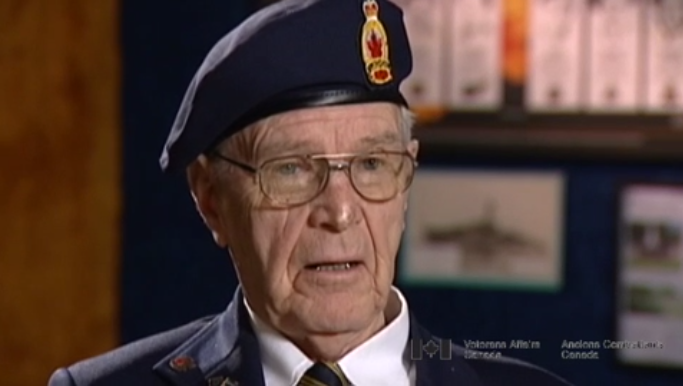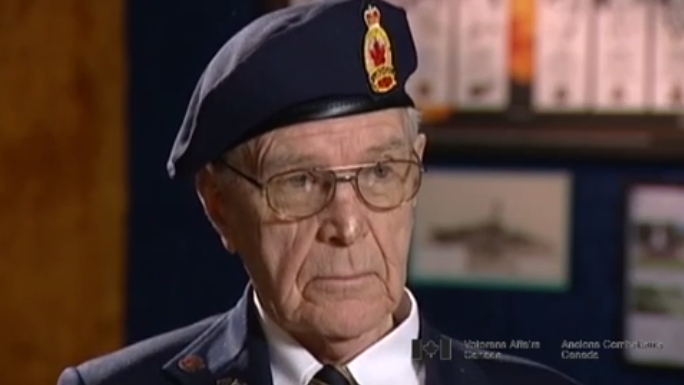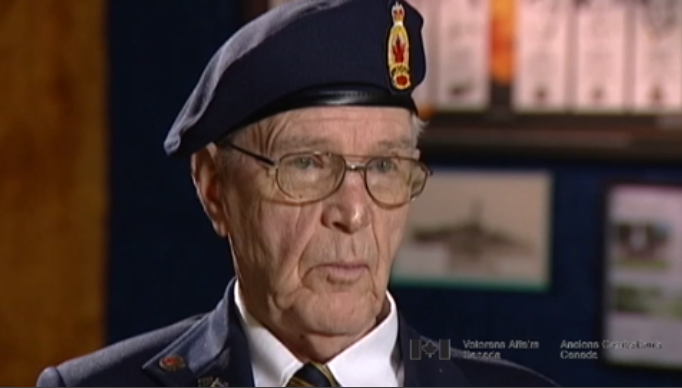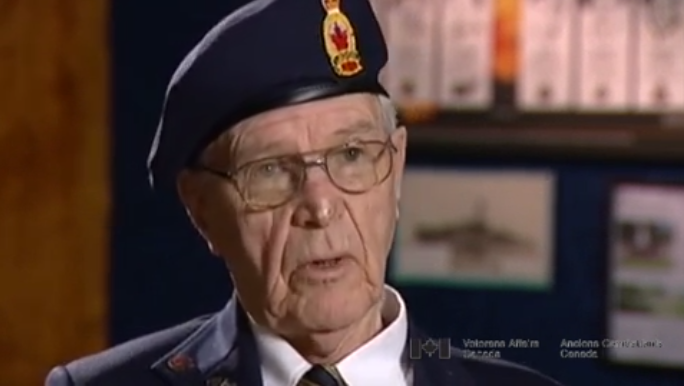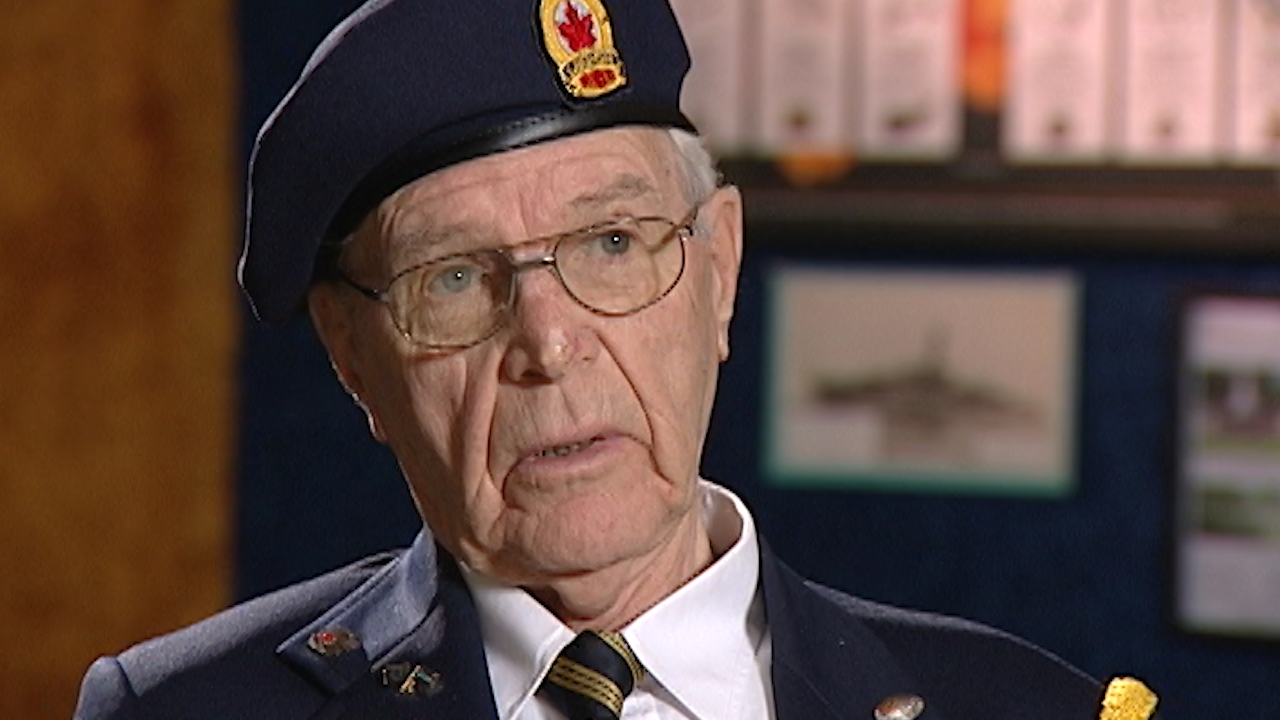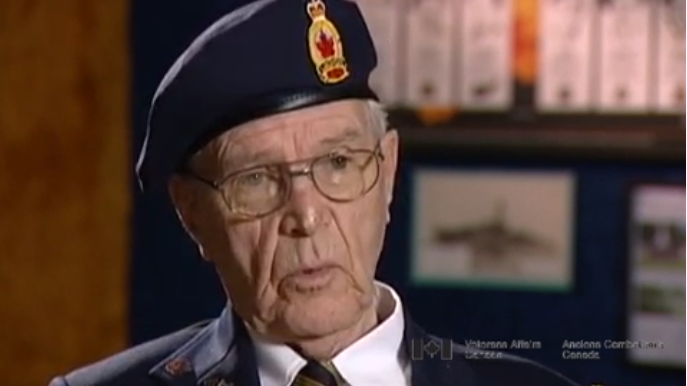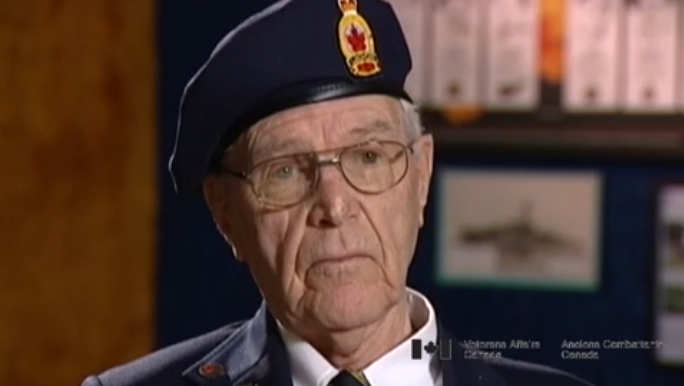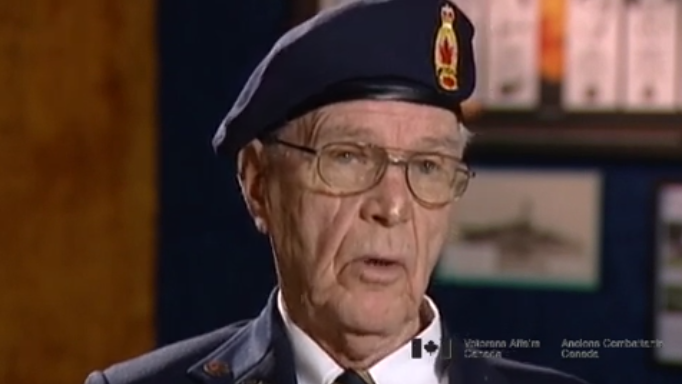They started to crash through it
Heroes Remember
They started to crash through it
Transcript
When we went through Caen it was just a pile of rubble. I
remember the, the tanks . . . some tanks had bulldozer blades
on the front and just went down the streets, and pushed a hole
wide enough so we could walk through and get out on the other
side. And some regiments had a real tough time on the
Carpiquet airport. That was the first airport we were supposed to
take, and we did, finally. Some regiments were a lot more
active in that than what we were. But we went through the other
side of Caen, and I remember we were being told to dig in.
That means dig slit trenches and . . . But the grou-, the
ground was kind of white chalk, and it was so hard you
couldn't dig. We just had nowhere to hide, but we made it.
Our company went on a little farther and to a place called,
it was a farm, it was called Cardonville Farm, and it had a
large high brick fence all the way around, brick, stone,
cement. And we took shelter in there and took up positions.
And our guys chopped holes, chopped holes through the
cement, and whatnot, so they could see out and observe and
fire on the Germans, if necessary. Anyway, that night the
Germans put on a tank fight against us, and they came right
up to that wall, and they were starting to crash through it,
but my company commander asked me to get headquarters and get a
artillery barrage laid down. OK, so I'm on the radio. I
couldn't get it to work. It just wouldn't work. I don't know
what was wrong at the time. And I worked and I worked, and I
kept at it, and I got through. And they laid down a barrage,
and it was short. And they laid down another barrage right on
some of the tanks, and they turned and went back to what they
were doing with us with the counterattack, but they turned
and went back to their own lands. And the company commander
said had I have been ten minutes later, we'd all have been gone
because they were coming through the walls.
Description
Mr. Hall describes action at Caen and Cardonville.
John Hall
Mr. Hall was born in Whitewood, Saskatchewan, in 1921. He worked on the family's farm until he enlisted in the Royal Regina Rifles. He was shipped overseas on a converted sugar freighter. Once in England, Mr. Hall experienced the Battle of Britain from the perspective of the local citizenry. He spent more land duty in a mail sorting depot until his Regiment joined the D-Day invasion at Juno Beach. He was a radio operator. Mr. Hall took part in numerous actions, most notably Caen, Calais and the Leopold Canal and the Liberation of Holland. After leaving the Army, Mr. Hall worked in the Canadian North with the Department of Natural Resources.
Meta Data
- Medium:
- Video
- Owner:
- Veterans Affairs Canada
- Duration:
- 2:33
- Person Interviewed:
- John Hall
- War, Conflict or Mission:
- Second World War
- Location/Theatre:
- Europe
- Battle/Campaign:
- Normandy
- Branch:
- Army
- Units/Ship:
- 436 Squadron
- Rank:
- Corporal
- Occupation:
- Signalman
Related Videos
- Date modified:



